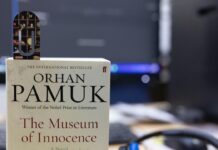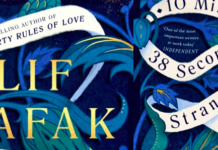It is a perfect Istanbul summer night after a hot July day. The Iranian singer Mahsa Vahdat enters the stage and tells the audience that she is happy to be back in one of her “favourite cities”. And then, she starts singing with her warm and harmonious voice that so much incorporates the beauty of Persian classical music. The famed Istanbul Erkek Lisesi gives a scenic background to her performance, set in its schoolyard on one of the last days of this year’s IKSV Jazz Festival. Ironically, the boys’ school also has a quite famous neighbour. Just next door is the General Consulate of Iran in Istanbul.
Mahsa’s music that brings together the magic of Persian poetry with blues and jazz tunes earned her fame among lovers of Iranian classical music both in Iran and abroad. However, Istanbul is – geographically speaking – almost as close as she can get to performing in her own country. Iranian women are banned from performing solo in Iran since the leader of Iran’s 1979 revolution, Ayatollah Khomeini, decreed so. Since then they are only allowed to sing in ensembles or choirs.
The repertoire of this night’s concert is drawn from Mahsa’s recent album “Traces of an old vineyard”. Accompanied by the Norwegian pianist Tord Gustavsen, by an Iranian Kamanche player and a Turkish percussionist, she sings poems of Hafez, Rumi and Omar Khayyam into the night. They contain the whole range of emotions that classical Iranian poems have to offer: From odes to the beloved and songs about the pain of separation to playful tunes about the joy of wine and drunkenness. The rhythms are diverse and change with the mood, while Mahsa keeps a strong stage presence. Voice and piano are incredibly well tuned to each other.
There is also a groovy, jazz-like element in all of the titles. Nevertheless, the Iranian element in Mahsa Vahdat’s voice is never compromised. She remains faithful to the classical poets of her homeland. “These poems are old, but how they address humanity is timeless. Their message is universal. The way they talk about truth and love is so liberating. Whenever I read these poems they refresh my soul and heart and I always find new dimensions and discover new layers in them”, says Vahdat. Before a song on Khayyam’s poem, Mahsa suddenly addresses the audience: “The beautiful thing about these poems is that you never know if it deals with the real wine or the mystic wine of divine love.”
In her new album, the wine imagery plays a prominent role. After a series of succesful duo albums, “Traces of an old vineyard” is Mahsa Vahdat’s first solo album. With her sister Marjan she recorded the CDs “Songs from a Persian Garden” (2007), “I am Eve” (2008) and “Twinklings of Hope” (2012). The intimacy of the sisters is reflected in the effortlessly flowing songs of these albums. Mahsa Vahdat also forged an unusual union with the American singer Mighty Sam McClain, which manifested on he albums “Scent of a Reunion” (2010) and “A deeper tone of longing” (2012). Possibly the first fusion of classical Iranian singing with the warm and vibrant blues sound of an Afro-American singer, their work was well-received by the World Music audience – “A deeper tone of longing” ranked #6 in the “European World Music Charts”.
For Mahsa Vahdat and her sister Marjan, who are also musical companions, the inspiration to sing came from their grandmother. She used to sing traditional lullabies to the two sisters during their childhood, while the poetry-loving father kindled Mahsa’s love of Persian poetry. At the age of twelve she started training in traditional Persian singing, which later led to a Bachelor degree in Music at Tehran University.
As a passionate singing instructor Mahsa Vahdat today teaches Persian vocal arts to young women inside her Tehran flat. The preservation of the female element within the Iranian vocal tradition is a matter close to her heart. Despite all restrictions for women she has motivated many Iranian women to conserve classical Iranian singing for future generations.
This night also, Mahsa voices her concern about the state in which her country has been in for many decades. “The morning sun of hope” is the name of her next song. She turns to the audience and smiles. “We have been waiting for this sun for a long time.” We don’t know whether her voice reaches across the wall to the Iranian Consulate or not.











